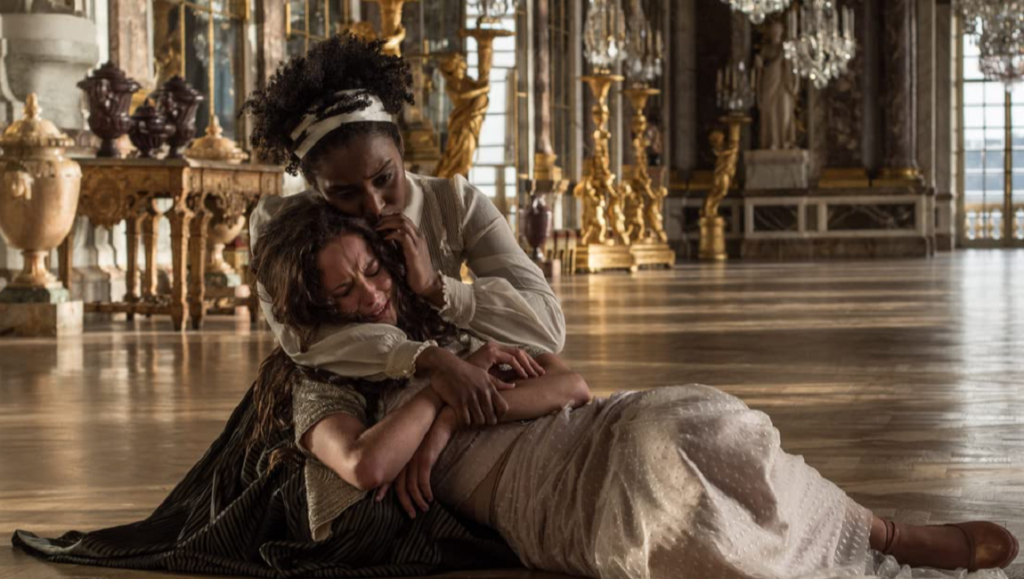The King’s Daughter is a would-be pop confection that would have been stale even if it hadn’t sat on shelves for nearly a decade.
The King’s Daughter is a film with a troubled history, to say the least. Based on the 1997 fantasy novel The Moon and the Sun by Vonda N. McIntyre, the earliest development of its big screen adaptation dates all the way back to 1999, exchanging hands between various film studios and creative artists for years before finally beginning production in the spring of 2014 courtesy of Paramount Pictures. Its planned wide release in spring of 2015 was scrapped a mere three weeks before its expected debut, the studio citing incomplete special effects work as the culprit. It was ultimately sold to another studio in 2020, which proceeded to offload it to yet another distributor late last year. And so, eight years after production officially wrapped, The King’s Daughter finally limps its way into theaters across the nation, with little fanfare and even less expectation. To put into context just how much time has passed, two of the film’s leads, Kaya Scodelario and Benjamin Walker, got married and had two kids in the interim.
That random piece of trivia ultimately proves more memorable than anything found in the movie itself, which is quite an accomplishment considering the story involves King Louis XIV of France kidnapping a magical mermaid that will grant him immortality so long as he slices it open before a solar eclipse. From the film’s opening moments, it’s quite obvious that the proceedings have been edited with a chainsaw, flitting with breathless abandon from one random scene to the next, continuity and coherency be damned. Scenes abruptly start and stop with no rhyme or reason, existing solely to thrust the bonkers storyline forward. Marie-Josephe (Scodelario) is a sassy orphan living in a convent who loves the cello and is apparently some sort of savant at composing music, even though the evidence is vague at best. She is called to the court of King Louis XIV (Pierce Brosnan) for reasons both obvious and incredibly plot-convenient, as it is soon revealed that she is the king’s illegitimate daughter. Luckily, her arrival coincides with the capture of a mermaid (Bingbing Fan), whose life force will grant the vain king immortality. Marie ends up bonding with the mermaid after jumping into its enclosure a few times and stroking its face, which apparently is all it takes to cement a lifelong friendship. The mermaid also heals her broken arm at one point by swimming around her and emanating a cheap-looking golden glow, proving its magical powers. Meanwhile, the villainous royal doctor (Pablo Schreiber) plots nefarious schemes, the king’s trusted priest (William Hurt) rambles on about the purity of the soul, and the hunky sailor (Benjamin Walker) who captured the mermaid falls in love with our spunky heroine, all while Brosnan — befitted with flowing and luscious hair extensions — chews the scenery in the key of fey.
It’s obvious that quite a bit of money was spent on The King’s Daughter, its vast and ornate production design hinting at a concept of enchantment the rest of the film is unable to conjure. Modern-day pop music from the likes of Sia fills the soundtrack, while the costumes, hair, and make-up run the gamut from era-appropriate to ‘70s glam rock to Flashdance. Director Sean McNamara is no stranger to heightened, pop-inspired tween entertainment, having helmed the likes of Bratz and Raise Your Voice. And in fairness, he does an adequate enough job here, although it’s hard to imagine any filmmaker who could successfully pull off a movie whose moral is about both metaphorical and literal freedom but whose heroine climactically screams, “I just want to belong to someone!” The mermaid itself is barely on screen, probably because the special effects are atrocious, although it must be noted that CGI was used to “soften” Fan’s Asian features, a completely unnecessary detail that doubles as one of the most offensive things put to film in ages. Somewhere along the way, Julie Andrews was brought in to provide voiceover narration, an obvious last-ditch effort to bring clarity and class to the Frankenstein-ed final product, one that manages to move at a clip but accomplishes little else. Even the title reflects the sheer stupidity on display; just call your film Princess and be done with it. At least we already know the cast moved on to better things, as should the viewer.
Published as part of Before We Vanish | January 2022.


Comments are closed.